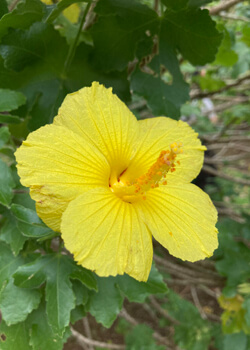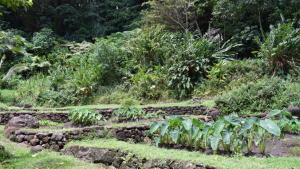
A new national collaboration will boost the University of Hawaiʻi at Mānoa Lyon Arboretum’s efforts to save Hawaiʻi’s native plants from the effects of climate change.
Lyon Arboretum has been selected to be part of the Plants and Climate Change Education (PLACCE) cohort, in partnership with the United States Botanic Garden. $50,000 in funding and collaboration opportunities in this cohort will enable the arboretum to create a comprehensive program for all ages to address climate change and its effects on Hawaiʻi’s endangered endemic plants.
Raedelle Van Fossen, Lyon Arboretum’s education manager, will lead the development and implementation of the program.
“Being able to learn from the other participants whose gardens are located across the states is a valuable opportunity. However, I am also excited to share our perspective and values as a representative of Hawaiʻi,” Van Fossen said. “For our local community, my hope is that we can provide opportunities to connect them with researchers, cultural practitioners and conservation groups, and learn from them what climate change means for the existence of our critically endangered plants, and what the ordinary citizen can do about it.”
Expanding awareness of endangered plants

Participants in the program will become familiar with the state’s endangered endemic plants, such as maʻo hau hele (native yellow hibiscus) and nānū (forest gardenia), and threats to their survival caused by climate change. They will also have opportunities to participate in climate change mitigation activities, informed by Indigenous Hawaiian practices.
“Lyon Arboretum’s participation in the PLACCE program supports the work of Lyon’s Hawaiian Rare Plant Program, an ex-situ (off-site) program dedicated to germplasm (genetic material) storage of native Hawaiian plants, by helping to shed light on the impacts of climate change and the plight of Hawaiʻi’s native plants,” said Nellie Sugii, Lyon Arboretum acting director and Hawaiian Rare Plant Program manager. “It is increasingly necessary to have educational conservation outreach efforts due to the accelerating rate of environmental pressures that result in habitat degradation and/or loss. I am confident that the Arboretum will be an active and valuable contributor to this endeavor.”
Lyon Arboretum will join five other peer institutions that are interested in exploring how botanical gardens and arboreta can maximize the impact of plant-centered climate change education.

